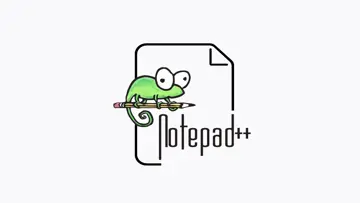1.6.0 Güvenli yüklemek için
The Code of Criminal Procedure (CrPC) is a significant legal framework governing the procedural aspects of criminal law administration in India. Enacted in 1973 and enforced on April 1, 1974, it establishes the procedures for investigating crimes, apprehending suspects, collecting evidence, determining the guilt or innocence of accused individuals, and deciding the appropriate punishment. Additionally, it addresses public nuisance, offense prevention, and the maintenance of family members.
Currently, the Act comprises 484 Sections, 2 Schedules, and 56 Forms, with the Sections categorized into 37 Chapters.
History:
In medieval India, following the Muslim conquest, Mohammedan Criminal Law became prominent. The British regime introduced the Regulating Act of 1773 which led to the establishment of Supreme Courts in Calcutta, Madras, and Bombay. These courts applied British procedural law to cases involving British subjects. After the 1857 Rebellion, British Crown took control in India. The Criminal Procedure Code of 1861 was enacted by the British parliament. This code continued post-independence and underwent revisions in 1969 before being replaced in 1972.
Classification of Offenses under the Code:
Cognizable and Non-cognizable Offenses
Cognizable offenses permit police officers to arrest individuals without a warrant as listed in the first schedule of the code. For non-cognizable offenses, officers must first obtain a warrant before making an arrest. Typically, non-cognizable offenses are less severe compared to cognizable ones. Reporting of Cognizable Offenses is under Section 154 Cr.P.C while Non-Cognizable Offenses are reported under Section 155 Cr.P.C. The Magistrate has authority to handle Non-Cognizable Offenses under Section 190 Cr.P.C. Additionally, under Section 156(3) Cr.P.C., Magistrates can direct police to register cases, conduct investigations, and provide challans/reports for court proceedings.
Summons-Case and Warrant-Case
Section 204 of the code prescribes that Magistrates issuing summons for accused individuals for attendance pertain to summons cases. However, for warrant cases (relating to capital punishment or imprisonments exceeding two years), Magistrates have the discretion to issue warrants or summons as deemed appropriate according to Sections 2(w) and 2(x) of the Code.
Genel bakış
CrPC 1973 in English, Mohit Agarwal tarafından geliştirilen Eğitim kategorisinde Ücretsiz Yazılım bir yazılımdır.
CrPC 1973 in English 1.6.0 26.04.2024 Tarihinde yayımlanan, be. O başlangıçta bizim veritabanı üzerinde 26.04.2024 eklendi.
CrPC 1973 in English aşağıdaki işletim sistemlerinde çalışır: iOS.
Kullanıcılar CrPC 1973 in English 5 dışarı-in 5 yıldız bir puan verdi.
İlgili
AIM HIGH Tips
This app is designed to provide guidance to teenagers seeking inspiration for their personal growth. Featuring 101 insightful tips, AIM HIGH! aims to contribute to your overall well-being and character development.Constitution of India My Guide
The application provides a comprehensive and organized presentation of the entire Constitution of India, available in both English and Hindi.PPC Pakistan Penal Code 1860
The application offers a comprehensive and current compilation of articles and chapters from the Pakistan Penal Code (PPC) 1860.Thirukural Daily
Tirukkural, also known as “Sacred Couplets,” is considered the most celebrated of the Patiren-kirkkanakku (“Eighteen Ethical Works”) in Tamil literature.Son İncelemeler
|
|
Software Informer
Software Informer ile Gelişmelerden Haberdar Olun |
|
|
PC Fresh
PC Fresh ile PC'nizi En Yüksek Performans için Optimize Edin! |
|
|
Nero PhotoSnap
Nero PhotoSnap ile fotoğraflarınızı geliştirin |
|
|
Nero RescueAgent
Nero RescueAgent: Veri kurtarma çözümünüz |
|
|
Flux
Flux by Cedrat ile iş akışınızda devrim yaratın! |
|
|
Output Messenger
Output Messenger ile Ekip İletişiminizi Kolaylaştırın |
|
|
UpdateStar Premium Edition
UpdateStar Premium Edition ile Yazılımınızı Güncel Tutmak Hiç Bu Kadar Kolay Olmamıştı! |
|
|
Microsoft Edge
Web'de Gezinmede Yeni Bir Standart |
|
|
Google Chrome
Hızlı ve Çok Yönlü Web Tarayıcısı |
|
|
Microsoft Visual C++ 2015 Redistributable Package
Microsoft Visual C++ 2015 Yeniden Dağıtılabilir Paketi ile sistem performansınızı artırın! |
|
|
Microsoft Visual C++ 2010 Redistributable
Visual C++ Uygulamalarını Çalıştırmak için Temel Bileşen |
|
|
Microsoft OneDrive
Microsoft OneDrive ile Dosya Yönetiminizi Kolaylaştırın |









